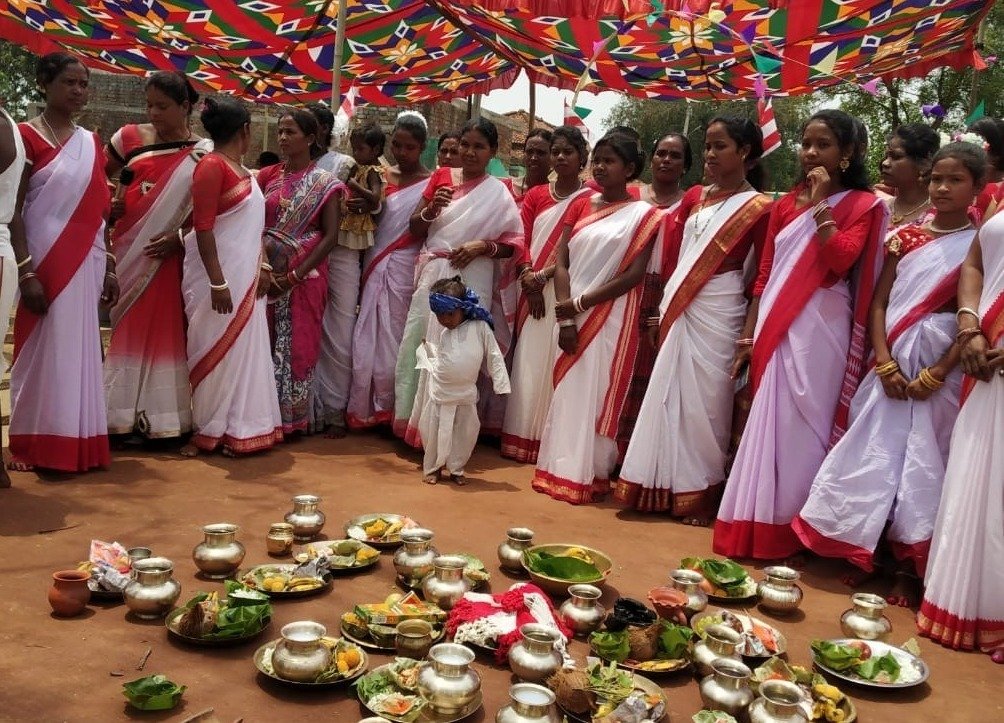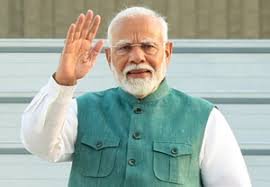RANCHI, April 11: Jharkhand’s biggest tribal festival ‘Sarhul’ and Muslim community’s ‘Eid-ul-Fitr’ were celebrated with religious and traditional fervour amid elaborate security arrangements across the state on Thursday.
Jharkhand Chief Minister Champai Soren, Governor C P Radhakrishnan and Union minister Arjun Munda greeted the citizens of the state on the occasion of Sarhul and Eid.
To mark the Sarhul, large number of men, women and children sporting traditional attires thronged the streets and marched in processions in different parts of the state after performing traditional rituals and offering prayers at different Sarna Sthals, place of tribals’ worship.
The CM, Governor and the Union minister participated in the rituals of the Sarhul festival in different places in Jharkhand’s capital Ranchi.
“Sarhul is a pious festival for tribals. Eid is also being celebrated today and the festival of Navaratri is also underway. I would like to extend my best wishes to people of all these communities,” the chief minister said after offering prayer at a Sarna Sthal on the campus of Tribal Hostel in Ranchi.
Soren also visited Siram Toli and Karam Toli where he offered his prayers to the Sal tree.
The governor and Munda participated in the Sarhul festival organised by the department of tribal and regional language of Ranchi University.
Speaking on the occasion, the governor said, “Sarhul is celebrated across the state marking the beginning of the spring season. Sarhul means worshipping trees and nature. The worshipping of trees, animals and forests is not in our blood but it is in our genes that will never go off. It is the greatness of our culture and way of our living.”
He said that every citizen of Jharkhand is an environmentalist by birth as they have got so much affection towards nature. “Our elders have designed the Sarhul festival so that we worship the tree as God,” he said.
Munda said, “Through the Sarhul festival, tribal acknowledges that we have no existence without nature. Tribals never want to leave nature. So, it has incorporated it in its lifestyle, tradition and customs.”
The three-day festival begins on the third day of the month Chaitra. People of various tribes such as Oraon, Munda and Ho pay obeisance to the Sal tree and thank mother nature for providing shelter, livelihood and food to them.
Sarhul, also called the spring festival, started with rituals in the morning, followed by a forecast of rains during the upcoming rainy season by ‘pahans’ (priests) based on traditional practices.
As per the tradition, two earthen pitchers filled with water are placed under a sal tree and kept overnight at the Sarna Sthal.
The priest after reviewing traditional methods of prediction announced that Jharkhand would get normal rainfall this year and harvest will be good.
In the afternoon, colourful processions were taken out from different corners of the city by the tribals.
Men and women were seen dancing to the tune of tribal songs, while children were seen marching with placards carrying messages ‘Ped-Paudhe Mat Karo Nast Varna Saans Lene Me Hogi Kast’ (Don’t destroy plants and trees, otherwise it will be difficult to breathe) and ‘Jahan Hariyali, Wahan Khushali’ (Where there is greenery, there is happiness).
Eid-ul-Fitr was also celebrated with religious fervour across Jharkhand on Thursday amid tight security.
In the state capital Ranchi, a large number of people offered Namaz at Harmu Idgah, Upper Bazar Jama Masjid, Doranda Idgah, Kadru Idgah and Iqra Masjid.
Adequate security arrangements have been made across all 24 districts of Jharkhand for the two major festivals.
Rajeshwar Nath Alok, Ranchi’s additional district magistrate (law and order), said elaborate security measures have been put in place by the district administration to ensure the peaceful passage of both festivals.
He mentioned the deployment of sufficient security personnel and magistrates at strategic points throughout the city, along with installation of CCTV cameras in key locations and the use of drones and personnel with video cameras to monitor any anti-social activities. (PTI)












